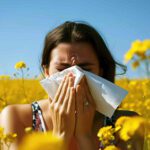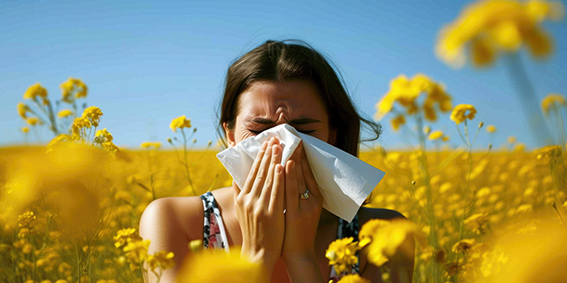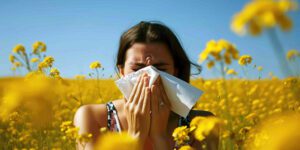- Monitor pollen levels daily
Use pollen forecast apps or websites to know when levels are high and adjust your outdoor activities accordingly. - Limit outdoor exposure at critical times
Early mornings and windy days usually have higher pollen in the air. Try to stay indoors during these hours. - Keep doors and windows closed
On high-pollen days, keeping windows closed helps prevent allergens from entering your home. Use air conditioning with clean filters. - HEPA filters / air purifiers
Having HEPA filters in your air conditioning system or standalone air purifiers can reduce the concentration of allergens indoors. - Personal hygiene after going outside
Shower, change clothes, and wash your hair after coming home to remove pollen that might otherwise spread inside. - Regular home cleaning
Vacuum with HEPA filters, clean surfaces with damp cloths (to avoid spreading dust), and avoid letting wet leaves or plant debris accumulate near your home. - Medications and treatments
- Over-the-counter antihistamines (for sneezing, itching, runny nose)
- Nasal corticosteroid sprays (to reduce nasal inflammation)
- Eye drops for itchy or irritated eyes
- Saline nasal sprays to rinse allergens
- Consult an allergist if symptoms are severe, persistent, or affect your quality of life
- Avoid activities that stir up allergens
Avoid mowing the lawn, raking dry leaves, or gardening on high-pollen days. If you must, wear an appropriate mask (with particle filters). - Indoor humidity control
Although Arizona is dry, indoor areas may have condensation or humidity. Keep moderate humidity levels to reduce indoor mold growth.














 and then
and then
More Stories
César Chávez (1927–1993)
The careers of the future
Thank You for Joining the 2025, Walk for the Fight Against Breast Cancer
TUCSON MEET YOURSELF CELEBRATION STARTS THIS FRIDAY, OCTOBER 17TH –
Domestic Violence Awareness Month
Fentanyl Crisis